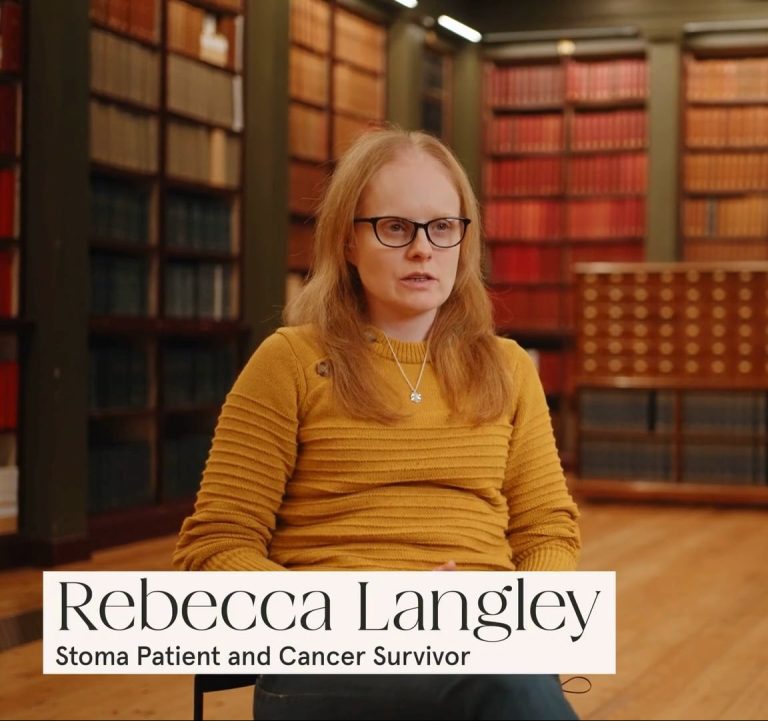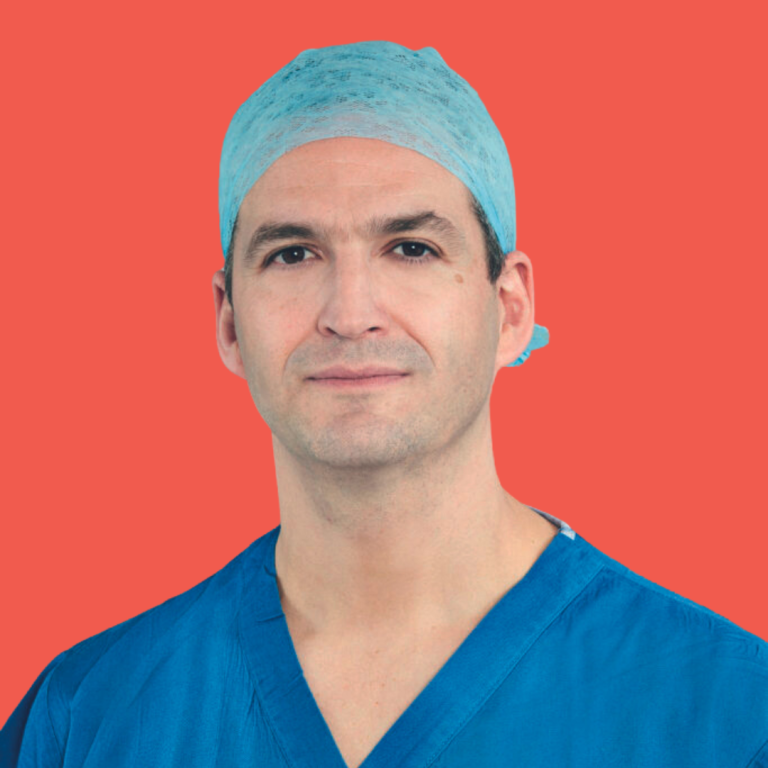#auguts
Welcome to our #auguts campaign. This year we are focussing on the MicrobioME because gut health is unique to you. Discover our recipes, share your tips and get comfortable with the uncomfortable.
Join the campaign
Share your storyDonate nowWelcome to our #auguts campaign. This year we are focussing on the MicrobioME because gut health is unique to you. Discover our recipes, share your tips and get comfortable with the uncomfortable.
Join the campaign
Share your storyDonate now
Hear from our experts, Dr. Saliha Mahmood Ahmed and Mr. James Kinross, and learn about the microbiome and ways you can look after yours. Listen to Rebecca talk about her own journey while Sid Hill and Chris Hull discuss the importance of the connections between the gut and the environment.
Mr James Kinross is a senior lecturer in colorectal surgery and a consultant surgeon at Imperial College London. He is the author of Dark Matter: The New Science of the Microbiome and he has prepared information just for you.
Sid Hill and Chris Hull, created, the Bowel Research UK Microbiome Garden, an edible meadow focussing on the connection between the ecological health of the landscape, it’s soil and the health of our own gut microbiome.
Rebecca shares her story from diagnosis with IBD to Bowel Cancer and the importance of research. A keen allotment grower, Rebecca joined the charity at the debut of the Bowel Research UK Microbiome Garden at RHS Chelsea Flower Show 2024.
Want to learn more about bowel cancer and bowel disease? Test your knowledge and share with friends!
How many microbes are estimated to live within the human body?
Correct
Incorrect
The human body including gastrointestinal microbiome is comprised of up to 100 trillion microbial cells, including bacteria, fungi, archaea and viruses
What percentage of the immune system is estimated to reside in your gut?
Correct
Incorrect
An incredible 70% of your entire immune system resides in your gut. This makes sense when you consider that the gut constantly deals with the outside world.
What does IBD stand for?
Correct
Incorrect
Inflammatory bowel disease. IBD is a term that refers to two different conditions: Crohn's disease and ulcerative colitis. They are both caused by overactivity of the immune system within the gut.
How many people in the UK have a stoma?
Correct
Incorrect
165,000–200,000 live with a stoma in the UK. Approximately 21,000 patients undergo stoma formation surgery each year
What percentage of cancers diagnosed globally are bowel cancers?
Correct
Incorrect
10% of all cancer cases diagnosed every year globally are bowel cancers. Bowel, or colorectal cancer, occurs in the colon (large intestine) or back passage (rectum). About 80% of bowel cancers occur in the large intestine and 20% in the rectum.
What is diverticulosis?
Correct
Incorrect
Small out-pouches from the wall of the gut. Diverticulosis is when small weaknesses in the gut wall mean small bulges (called diverticulae) develop. Around three quarters of people with diverticulosis don't have any symptoms
How many people in England have Lynch syndrome?
Correct
Incorrect
It is estimated that 1 in 400 people in the England have Lynch syndrome, but only 5% are aware that they have it. More research is needed to fully understand the prevalence and impact.
Age impacts the likelihood that someone will have diverticulae in their gut. What proportion of adults over 50 have diverticulae?
Correct
Incorrect
Roughly 1 in 3 people. Diverticulae (outpouching of the gut wall) are more common in older people. Approximately half of people people over 50 have diverticulosis in their colon, which rises to 70% in those aged 80 years or older.
What is Lynch syndrome?
Correct
Incorrect
Lynch syndrome is a type of inherited cancer syndrome associated with a genetic predisposition to different cancer types. This means people with Lynch syndrome have a higher risk of certain types of cancer. Lynch Syndrome is also known as hereditary non-polyposis colorectal cancer (HNPCC).
What does LARS stand for?
Correct
Incorrect
Low anterior resection syndrome. 80% of patients who have surgery to remove cancers or fix other issues in the lower bowel (near the rectum) have problems with bowel control after surgery. This is known as low anterior resection syndrome, or LARS. The symptoms of LARS include needing to go to the loo frequently and urgently, incontinence, and constipation
What is diverticulitis?
Correct
Incorrect
Infection and inflammation of outpouching in the gut wall. Diverticulae are small outpouchings from the gut wall. If stool gets stuck in them, this can cause infection and inflammation called diverticulitis.
How many more patients under 50 are diagnosed with bowel cancer now compared to the 1990's?
Correct
Incorrect
48% more. Rates of colorectal cancers in patients under the age of 50 have risen by 48% since the 1990's. There's evidence that this is related to diet and lifestyle factors
What proportion of people with Crohn's will have surgery?
Correct
Incorrect
75% of people with Crohn's disease will need surgery at some point. This is usually to treat the symptoms and reduce the risk of complications from the condition.
You could help our researchers make the breakthroughs that leads to life-saving and life-changing treatments.
Donate nowShare your storyGut health is unique to you, so hear from experts, people with lived experience and the community to find out ways they manage their gut health. Scientists believe that, from birth, the gut microbiome is linked to virtually every aspect of our health. There is still much more to discover but take your first step here.

Rebecca shares her story from diagnosis with IBD to Bowel Cancer and the importance of research. A keen allotment grower, Rebecca joined the charity at the debut of the Bowel Research UK Microbiome Garden at RHS Chelsea Flower Show 2024.

Sid Hill and Chris Hull, created, the Bowel Research UK Microbiome Garden, an edible meadow focussing on the connection between the ecological health of the landscape, it’s soil and the health of our own gut microbiome.

Mr James Kinross is a senior lecturer in colorectal surgery and a consultant surgeon at Imperial College London. He is the author of Dark Matter: The New Science of the Microbiome and he has prepared information just for you.
Join the #auguts campaign by sharing your own recipes, tips and stories via video or the written word!
Your video or written story will appear on our website and be shared on our social media channels. Please include your social media handles if you feel comfortable with us tagging you when we share your story. Submissions may be edited slightly, for example by adding captions or putting several videos together, or adding our logo.
Take a look at this guide for some tips on filming video on your phone. If you have any questions, email hello@bowelresearchuk.org
By completing this form you are agreeing to enter our newsletter database to receive additional email updates from Bowel Research UK about research, patient information and fundraising. Access our privacy policy at the bottom of the page.